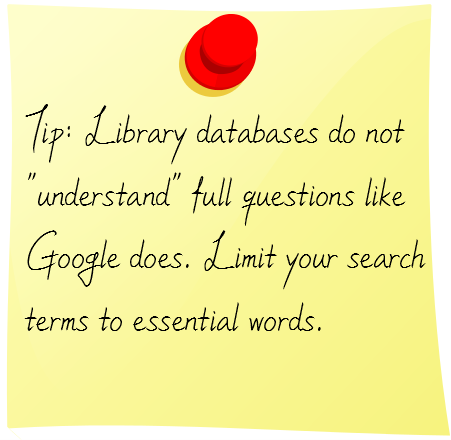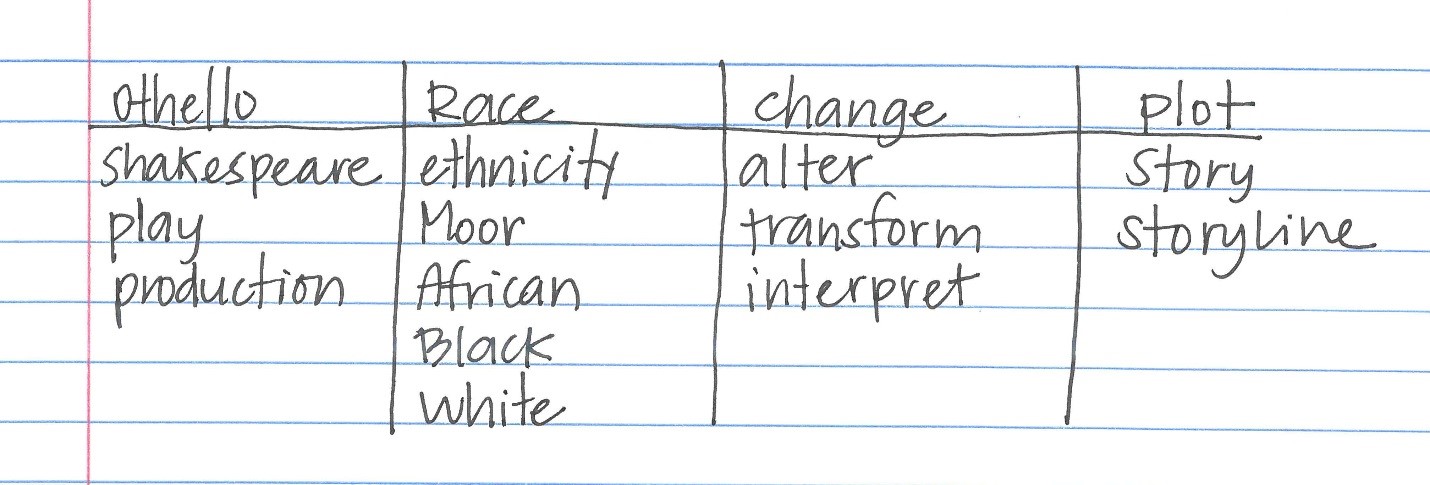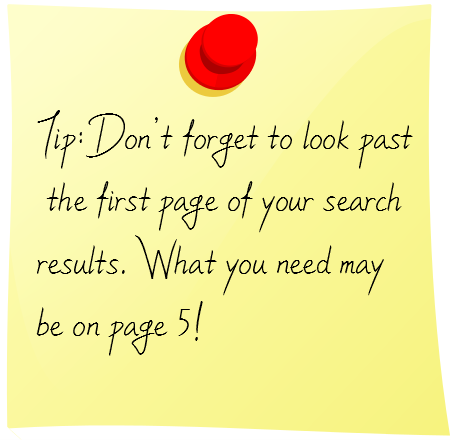- Decide on what types of information to look for
- Develop keywords for your search based on your research question or thesis
- Use additional search techniques to find the information you need
Introduction
For many college assignments, the information to support a thesis will not involve conducting a study but will come from sources available through the library or through a search engine like Google.
Decide on what types of information to look for
The steps involved in your search for information will depend on your assignment instructions and the types of information that would best suit your needs.
Example: If you were writing a paper about the play Othello and your research question was “Would changing Othello’s race dramatically change the plot?”, then you may choose to look for the play, find articles about race in Othello written by scholars, or search for recordings of productions of the play that portray Othello’s race as written and productions that change Othello’s race.
Develop keywords for your search based on your research question or thesis

You have generate keywords that describe what you want to know, just like you would in Google. To generate keywords for the research question in the previous example, you can start by pulling key terms from your research question or thesis and then begin to think of synonyms and related terms for each one, as in the example below:

Now you are prepared to search for library resources from Reese Library. Choose different keyword combinations to help you find sources that you need. Just like in Google, some combinations will give you better results than others.
Example: Using the keywords “Othello race” in GALILEO Discover Search leads to useful results like The Culture of Othering: An Interrogation of Shakespeare's Handling of Race and Ethnicity in The Merchant of Venice and Othello, but “Othello black” leads to different useful results like a magazine interview with a director of the play in “Does Othello Have to Be Black?”.
Use additional search techniques to find the information you need

There are many other search tips and tricks that you can use when searching beyond coming up with different keyword combinations. The video embedded below and Northeastern University’s Top 10 Search Tips offer additional advice on how to find the information you’re looking for:
Remember, if you need help with searching for sources, you can contact a librarian for further assistance!
